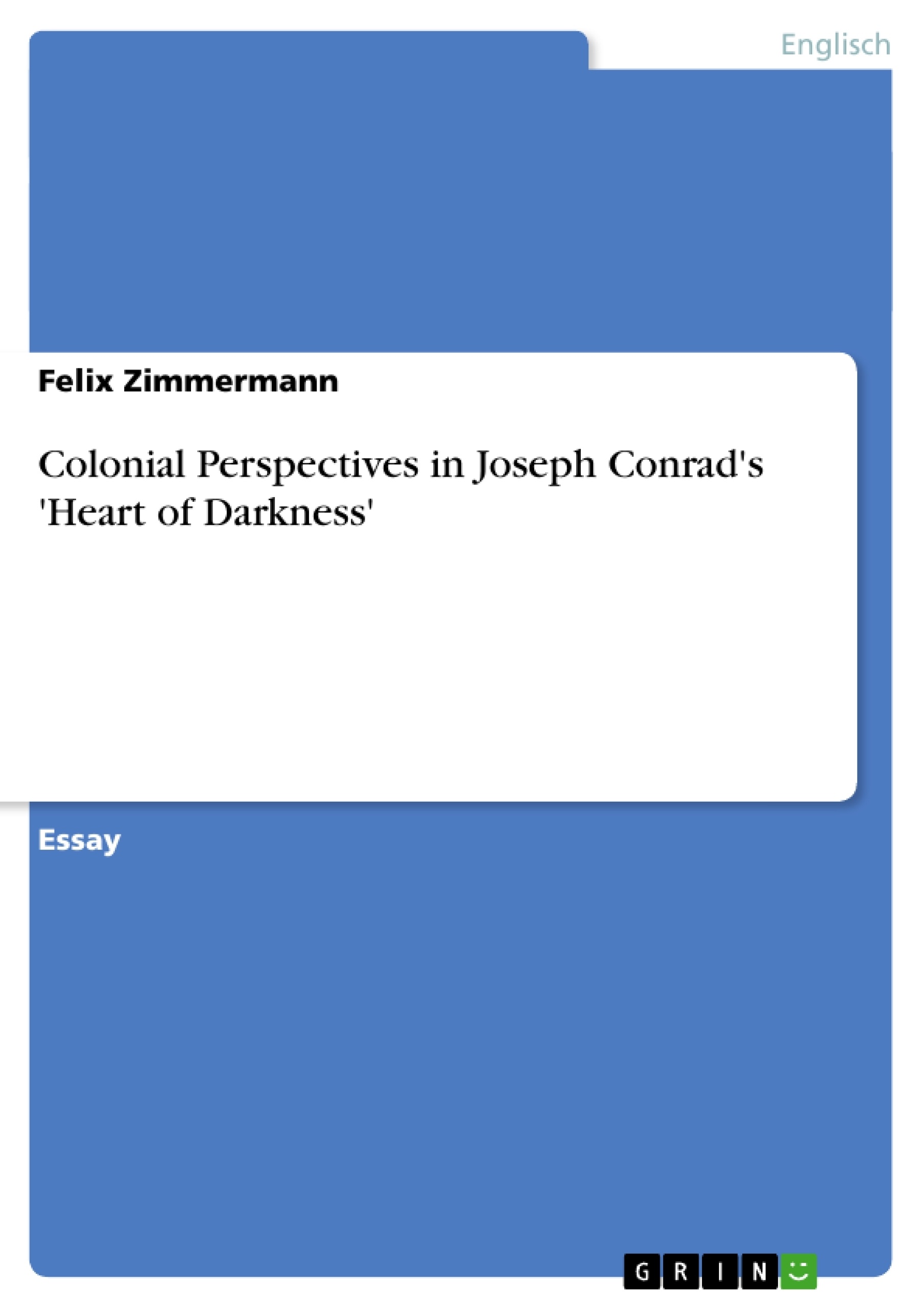Leseprobe
Introduction
Interpreting the novel „Heart of Darkness“, confronts the reader in a direct way with the barbarity of the former colonial system in Congo. Joseph Conrad illustrates in his highly valued novel numerous aspects of the European view of the African continent in the late 19th century. These times were characterized by an omnipresent pursue of establishing economically promising colonies in different parts of the world. Due to their vast repertoire of natural resources, African countries played an important role in the struggle about European hegemonic interests. However, aside from merely commercial matters, there was a certain need for moral justification based on ideological concepts. The novel's central character Marlow “reflects the authors perception”(Cf. Achebe 2000: 21 et seq.) of the Congo's inhabitants and nature, as well as his attitude towards the sense or nonsense of colonial enforcement of power. Analyzing Marlow's thoughts and comments, implies therefore drawing a picture of Conrad's mind and behavior patterns, developed during his engagement as a a captain on a steamship, in the course of Belgiums intention to exploit the Congo's natural and human resources. It is the act's impressive narrative style, as well as the subtle attempt to uncover Conrad's intentions, that prompt many critics to the position - represented among others by the famous Nigerian writer Chinua Achebe - that he has to be rated as being not only a good story-teller but also as being racist (Cf. Ibid.: 10, 25). Actually the novel contains several passages that confirm Achebe's opinion, for instance when Marlow, when speaking about the Congo's inhabitants, states disgustedly “they were not inhuman. Well, you know, that was the worst of it - this suspicion of their not being inhuman [,..]the thought of their humanity - like yours - the thought of your remote kinship with this wild and passionate uproar. Ugly” (Conrad 1995: 62 et seq.). With a view to the racial aspect, this leads us to a more general question: to what extent does Marlows way of thinking correspond with the predominant European perception of Africa at this time? In this context, the approach of relating the views of the young idealistic Marlow and the trader of Ivory Mr. Kurtz, will help us to understand the basic assumption which says, that colonial perspectives were generally characterized by a racist ideology. But what else should we consider before analyzing the protagonist's positions?
The ideological justification of colonization
As aforementioned, the exploitation of other country's material and immaterial goods required a certain justification. It was not only the prospect of bringing more wealth and prosperity to Europe, that motivated colonists to leave their homes for a risky adventure in overseas, but also the feeling of fulfilling a noble mission,like Marlow remarks: “After all, I also was a part of the great cause of these high and just proceedings” (Conrad 1995: 33). The ideological background - embodied by Mr Kurtz - implied the attitude that “each station should be like a beacon on the road towards better things, a centre for trade of course, but also for humanising, improving, instructing” (Ibid.: 58). The mentioned willingness of “humanising etc.”, that means nothing else than “civilizing”, bases on the belief, that African peoples are inferior to European ones. Concerning this matter, Mr Kurtz goes more into detail in his report under the authority of the “International Society for the Suppression of Savage Customs” by claiming, that “we whites, from the point of development we had arrived at, 'must necessarily appear to them in the nature of supernatural beings - we approach them with the might as of a deity” (Ibid.: 83). In the eyes of Belgian colonists, the submission of the Congolese for economic reasons also brought a considerable advantage to this central African country, by means of getting in prolific contact with members of a civilized nation, how they considered themselves. This pseudo-human approach determined the intercultural contact situation between colonists and colonized. The most accurate description of such relationship provides the notion of “paternalism”.
[...]
- Arbeit zitieren
- Felix Zimmermann (Autor:in), 2010, Colonial Perspectives in Joseph Conrad's 'Heart of Darkness', München, GRIN Verlag, https://www.grin.com/document/146965
Kostenlos Autor werden






















Kommentare